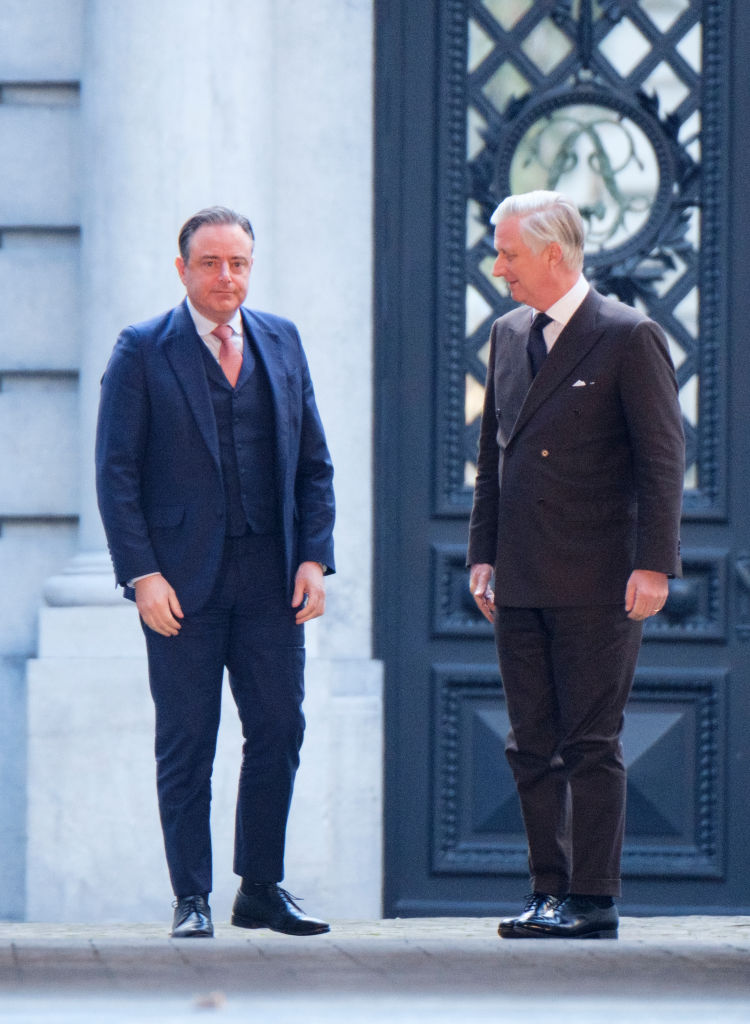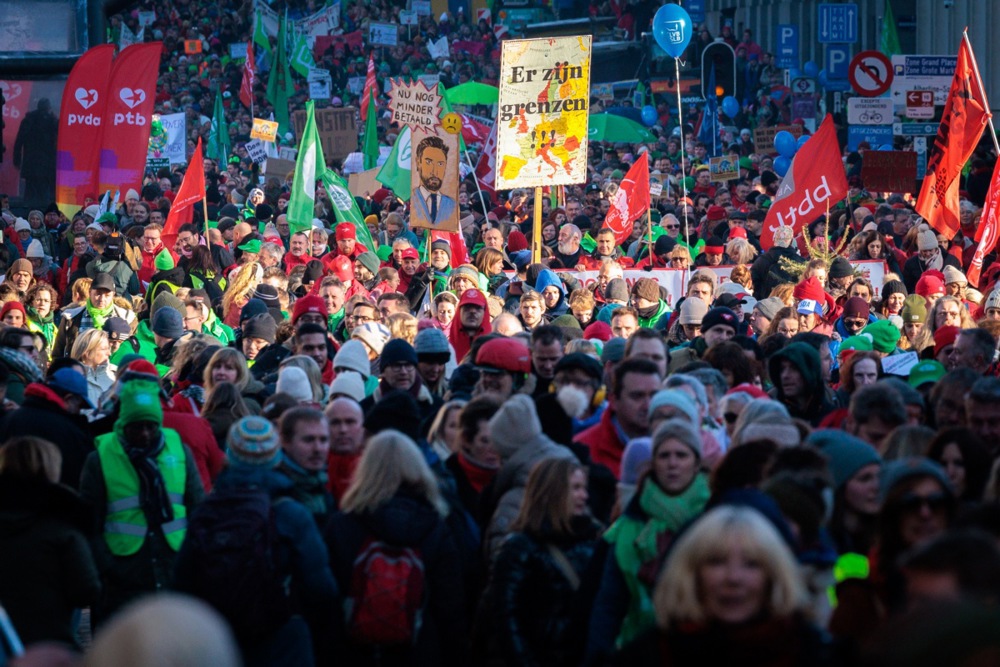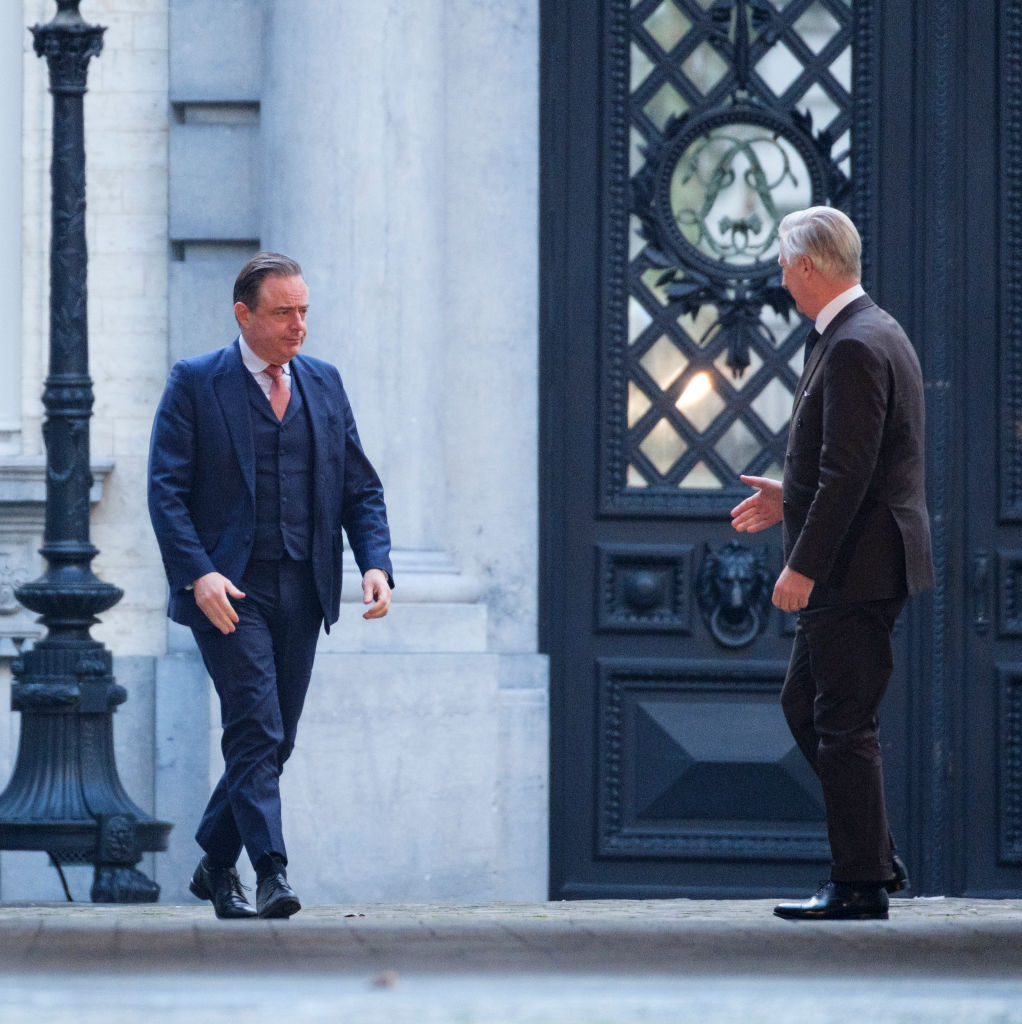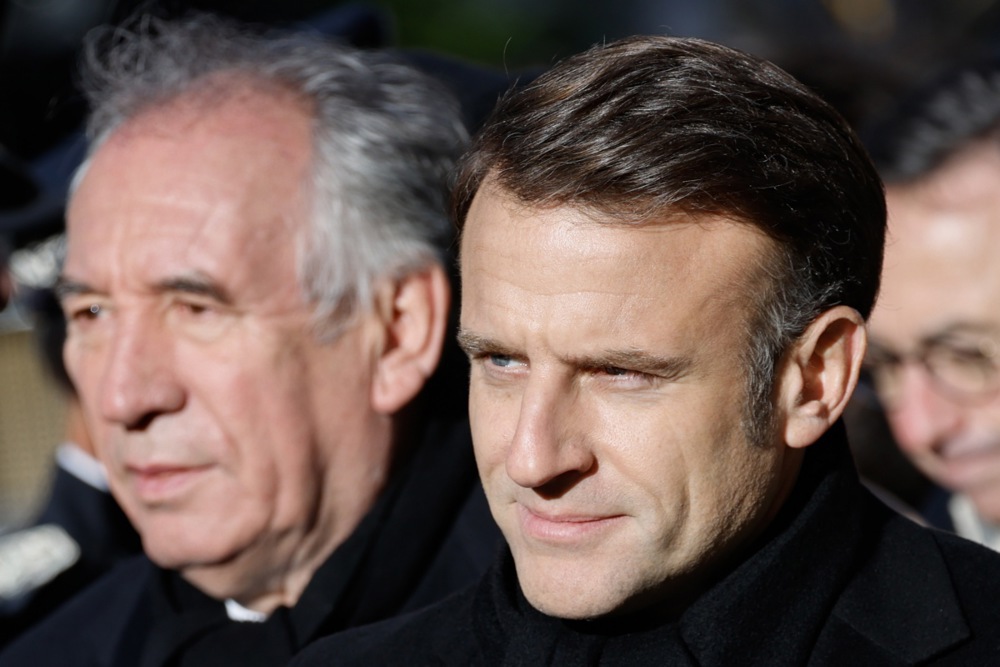Belgium’s ruling centre-right coalition is deadlocked over crucial budget negotiations, with senior government figures suggesting its collapse is now a real possibility.
Prime Minister Bart De Wever has been beating the drum on the urgent need for a balanced budget and advocates for a minimum saving of €10 billion for the coming years. His ‘Arizona’ coalition of Liberals, Socialists and Flemish nationalists is however highly divided.
The Liberal MR party is said to be obstructive, opposing new taxes because Belgium already ranks among the most taxed countries in the industrialised world. On the other side, the Socialists of Vooruit want to “tax the rich” to find the extra money.
The parties are reportedly so divided they have not yet discuss the plans in depth, despite cajoling the PM, raising doubts about the viability of the government.
“I have been elected to clean up the country and that is what I intend to do. Otherwise, there is no point,” De Wever told journalists today.
Without restructuring, there is a risk of a vicious circle of growing deficits, exploding interest charges and ever-increasing public debt, which will further erode the welfare state, according to De Wever.
His plan centres on four areas: Labour and sick-leave reform, lower healthcare costs, reduced asylum funding and cuts to civil service budgets.
He also eyes pension cuts, VAT increases, less development aid spending and freezing indexation -Belgium’s automatic rise of wages and social benefits when inflation goes up.
These “painful but inevitable” proposals were not well received by his coalition partners, who already rejected many of them in the past and who want to water down the proposed cuts.
A major trade union protest has taken place in Brussels as tens of thousands showed their opposition to possible cuts by the Belgian Government. https://t.co/CvUtmvr7rO
— Brussels Signal (@brusselssignal) October 15, 2025
De Wever went on the counter attack today.
“We now need to put the budget in order. These are difficult decisions, but if you are not able to make difficult decisions, you are not fit to govern a country,” he told reporters.
“A government’s objective is to serve the population. And not the other way around. We are in a very difficult situation, I cannot deny that”, he added.
“I would prefer the budget to be voted on in parliament before the end of the year. There is not much time left.
“If the parties remain irreconcilable, sooner or later we will have to face the consequences,” he said, referring to a possible fall of the government.
“It would be completely irresponsible not to resolve this issue now.”
Foreign minister Maxime Prévot said: “The situation is tense, the opposite would be lying.”
He said that the fall of the government, “can never be ruled out” but added: “Our duty is to make sure that we find a solution.”
Prévot noted that the savings were needed because “we have lived for decades beyond our means”.
De Wever presented his take on the issue during a much watched opening lecture on political science at Ghent University on October 7. He warned of a “collapsing welfare state” due to demographic pressure, high expenditure on ageing, defence and a chronic deficit.
Without intervention, the Belgian deficit would rise to 6.4 per cent of GDP, or €45 billion, in 2029, well above the European Union limit.
In the coalition agreement, the goal was to get the deficit down to 3 per cent, which would need €20 billion in savings.
Leading economists want the government to go further and say that €30 billion needs to be found, because the current spending on accumulating debt is unsustainable in the current context of relatively high interest rates and weak growth.
In 2024, interest charges already amounted to €14 billion, enough to increase all Belgian pensions by €400 net per month, according to economist Stijn Baert.
Belgium’s public finances have veered further off track, with official projections now pointing to a national debt load of 120 per cent of GDP by 2030. https://t.co/DRi7TfQwgf
— Brussels Signal (@brusselssignal) June 11, 2025
An extra difficulty is the European debate regarding Euroclear, the Belgian company where frozen Russian assets are kept.
Interests on this earn the Belgian State around €1.25 billion, which the country uses to send to Ukraine, registering it as military spending.
Other European countries want to confiscate those Russian assets, which would have far reaching consequences for Belgium.
Further international pressure also comes from the EU itself. Belgian budget talks are required by the bloc due to the EU’s fiscal governance framework, which enforces strict rules to ensure economic stability across member states.
In June 2024, the European Commission initiated an excessive deficit procedure against Belgium.
Tomorrow, the rating agency Standard & Poor’s will publish a new report on Belgium. It is expected to urge the government to press ahead with its reforms.





